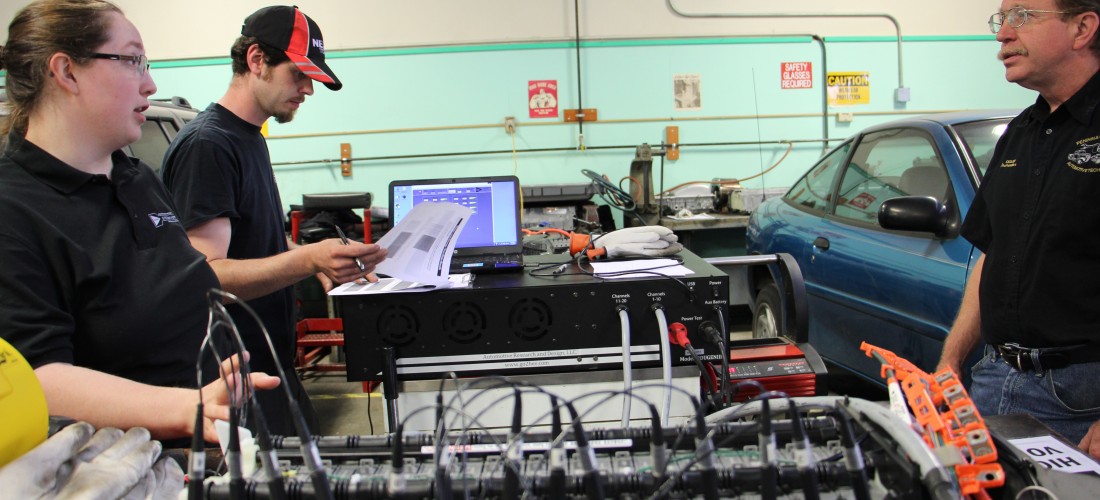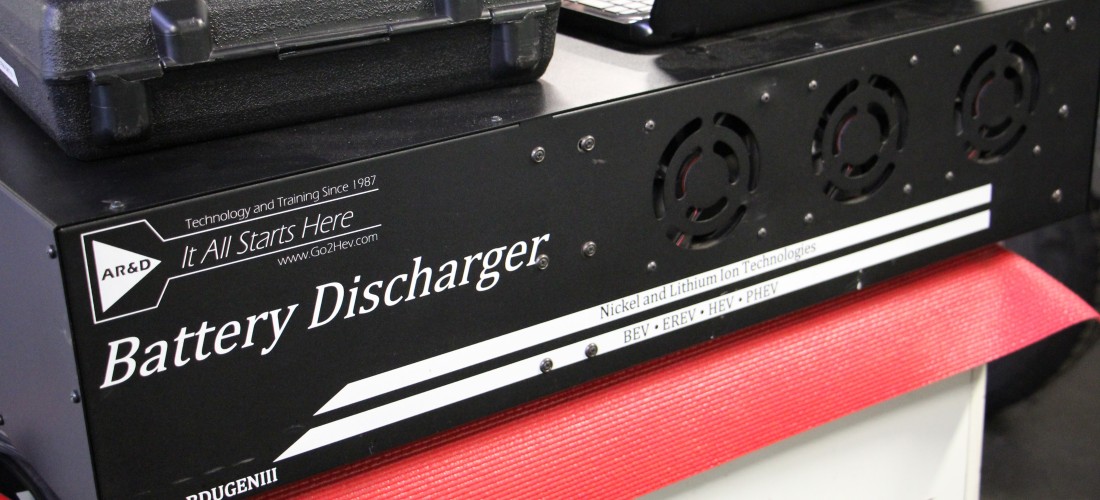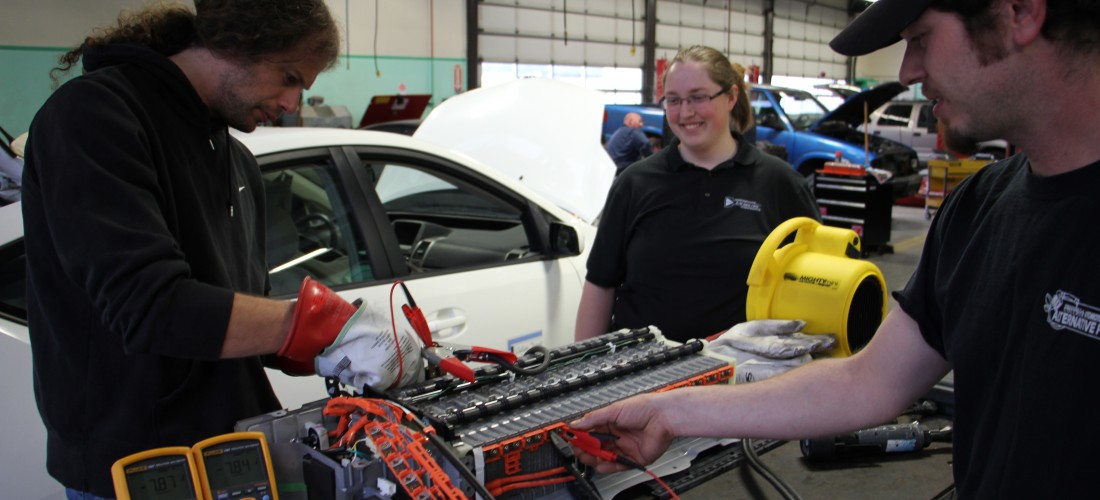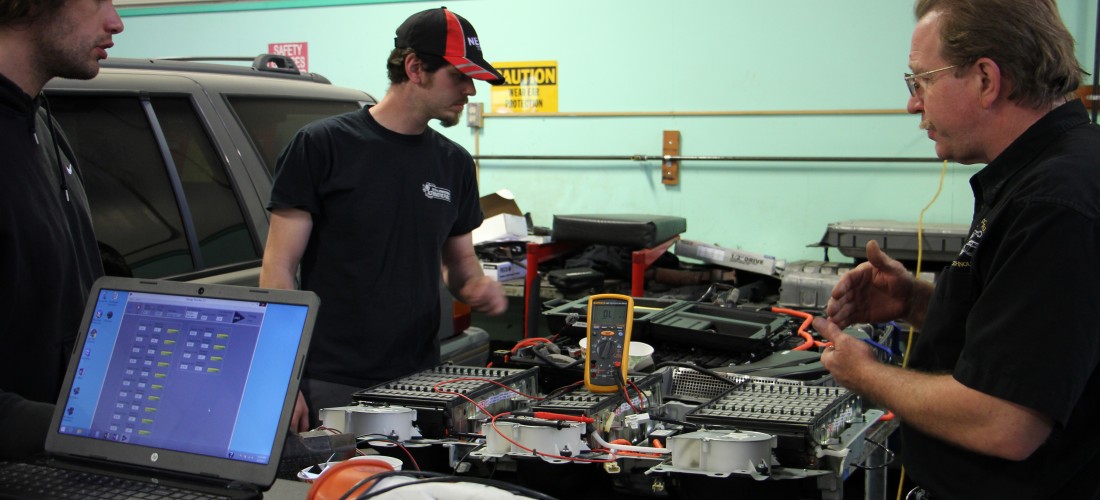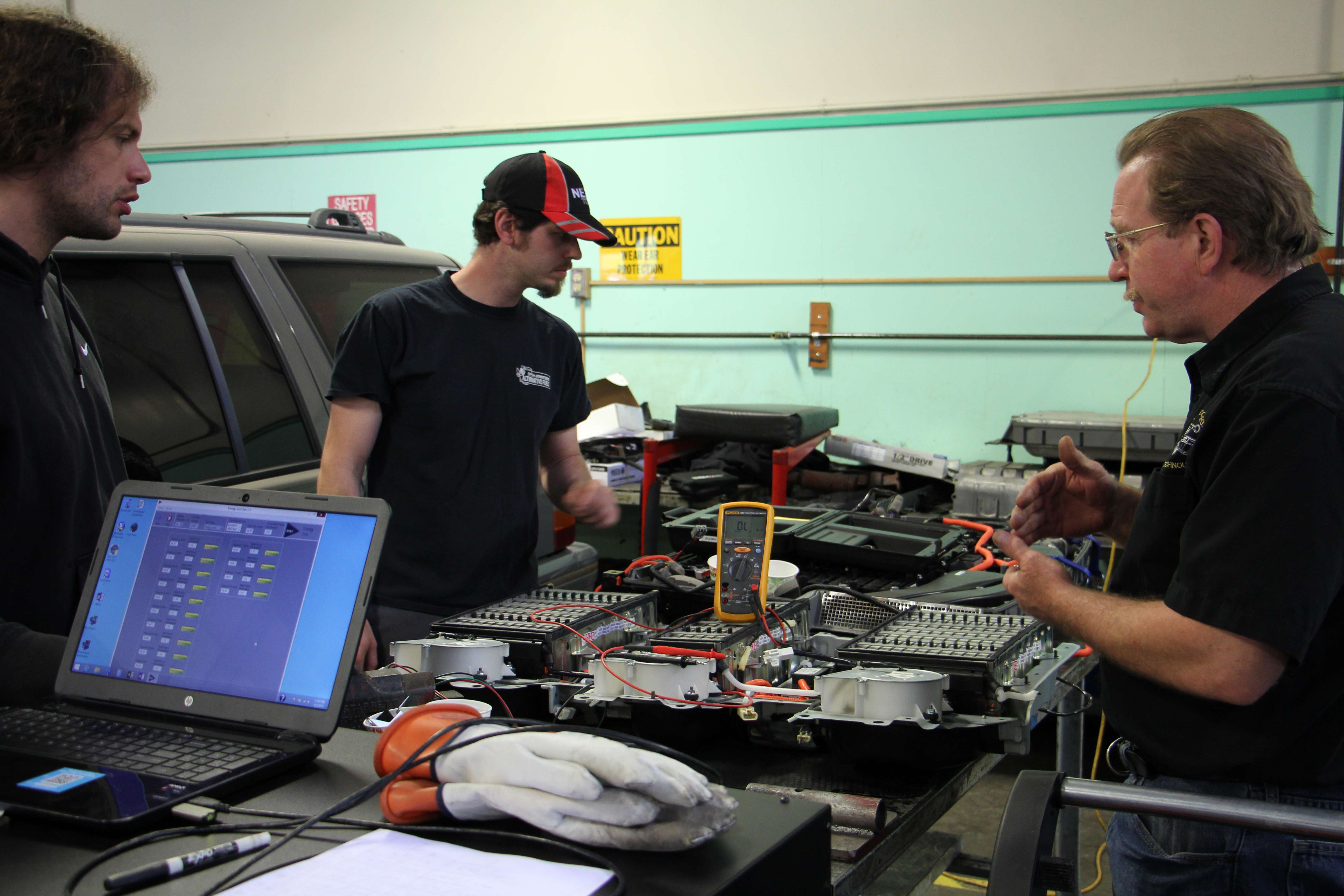
By Giovanni Roverso
Local hybrid vehicle owners have precious few days left until the end of Spring Quarter to get their batteries reconditioned at nearly no charge by Peninsula College’s Alternative Fuels program students. The Automotive Department is one of just a few locations able to perform the task in Washington State.
The battery reconditioning service will be available again every spring quarter. Battery reconditioning gives dead batteries a new lease on life without having to recycle or dispose of them, saving thousands of dollars otherwise spent on a new or refurbished battery.
The Alternative Fuels program makes PC the only community college in Washington State and one of only a handful in the nation to offer an approved, accredited Alternative Fuels Certificate Program.
According to Automotive Technology coordinator and instructor, Mike Hansen, the program has been ramping up in the last three years thanks to an increasing availability of new technologies. Students with the Alternative Fuels program learn about hybrid and electric, compressed natural gas, propane, bio-diesel, flex fuel and ethanol-powered vehicles.
Peninsula College trains its students on battery reconditioning in partnership with Port Angeles-based Automotive Research & Design, LLC, which was founded in 1987 by CEO Christina Quarto and Chief Technical Officer Mike Quarto.
AR&D provides the Automotive Department with training and hardware like its cutting-edge Generation III Battery Discharge Unit, which is used to recondition Nickel-Metal Hydride batteries, common in most hybrids. The company accepts student interns, like Tara Owens, from the Alternative Fuels Program.
CTO Mike Quarto used to work at General Motors and was responsible for management, development of control and diagnostics systems, and service solutions for the Chevrolet Volt, Fuel Cell, Two-Mode Hybrid, Parallel Hybrid Truck (PHT), EV1 Electric Vehicle, S10 Electric Truck, and Alternative Fuel Systems Programs.
The college also has other mutually beneficial relationships with both private individuals and companies like Clallam Transit System, which uses biodiesel and hybrid vehicles to shuttle its employees around.
Students are given the opportunity to practice and train on CTS and privately owned vehicles in return for free labor and a good value on parts.
Hansen said that before the recent agreement with CTS, he had to resort to “booby-trapping” Automotive Department vehicles’ battery packs by swapping in faulty modules for students to train on.
The reconditioning process doesn’t work if battery packs contain bad modules, so the Automotive Department also has agreements with companies like 2nd Life Battery to acquire used battery packs and whom to sell its bad modules to for recycling or for use in low-voltage systems.
Students can obtain an Alternative Fuels Certificate through a year-long program, after completion of a two-year Associate of Applied Science Transfer degree in Automotive Technology. Hansen said that the college will eventually offer a four-year bachelor’s degree that includes business management.

